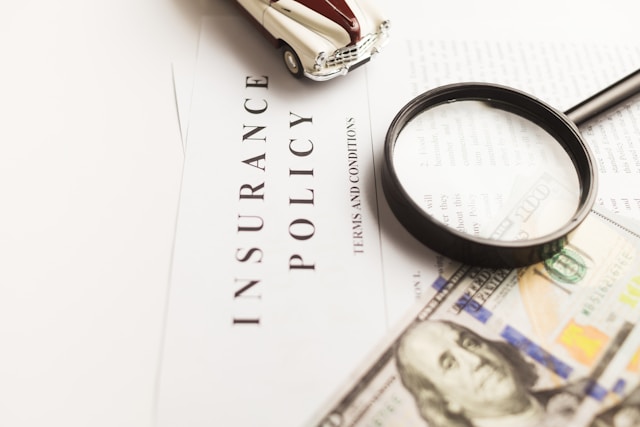Your Smartest Way to Get Competitive Car Insurance Quotes
Share
Share

Let’s be honest: wading through the world of car insurance can often feel like trying to solve one of those ridiculously complex puzzles, especially when you’re doing it blindfolded. Yet, securing the right car insurance isn’t just some legal formality you have to tick off; it’s a truly vital financial shield, protecting you from what could be some absolutely crushing costs if an accident or unexpected event ever hits. The really sharp drivers out there, they know that the genuine secret to unlocking substantial savings and getting rock-solid protection boils down to one surprisingly straightforward, yet all too often overlooked, strategy: mastering the absolute smartest way to get car insurance quotes from a whole bunch of different providers.
But what, you might ask, truly makes one quote “competitive” when another just isn’t quite cutting it? And how can you really be sure you’re not just snagging a dirt-cheap price, but also a policy that genuinely covers your backside without leaving you dangerously exposed? It’s really about looking way beyond that initial monthly premium number. It demands a real grasp of all the different factors at play and, crucially, approaching the whole comparison game with a crystal-clear, informed plan.
Insurance companies, bless their hearts, consider quite a few things when they’re hammering out your premium. It’s essentially all about calculating risk, pure and simple. Your driving record, for instance, probably sits right at the top of that list. If you’ve managed to keep things squeaky clean, with no accidents or nasty traffic violations for a good long stretch, you’ll almost certainly find yourself looking at more agreeable rates. On the flip side, if there’s a history of claims or perhaps a few too many tickets, well, that signals higher risk to the insurer, and that, my friend, pretty naturally translates into higher premiums.
The specific car you tool around in also has a significant pull on your quote. We’re talking about everything from the make and model to its age, and even those fancy built-in safety features. Generally speaking, those high-end luxury vehicles or the really sporty, high-performance models tend to cost more to insure. Why? Because their repairs can be eye-wateringly expensive, and let’s face it, they might just be more attractive targets for thieves. Newer cars, with all their advanced safety tech, could potentially snag you some discounts, but do remember: if those sophisticated systems get dinged, the repair bills can be surprisingly steep.
Believe it or not, where you hang your hat also plays a surprisingly big role. Living in a bustling urban area, for example, often comes hand-in-hand with heavier traffic, higher rates of vehicle theft, or simply more reported accidents. These factors generally nudge insurance costs higher compared to quieter, more rural settings. Even how many miles you typically put on your car each year can sway your rates; it’s a simple fact that the more time you spend on the road, the higher your statistical chance of being involved in some kind of incident.
Your age and how long you’ve been driving, those are another pair of heavy hitters. It’s a well-known truth that younger, less experienced drivers – particularly teenagers – often face the steepest rates. This isn’t personal; it’s because statistics plainly show a higher probability of accidents in those younger demographics. Rates typically start to come down as drivers gain more years of experience, usually evening out in their 30s to 50s, before perhaps seeing a tiny bump up as folks get older. And here’s a kicker: in a good number of states, your credit history can even factor into your car insurance score. Insurers use this score as a way to predict claims likelihood, which can often lead to better rates for those who keep their financial house in order.
Finally, the actual coverage levels and deductibles you pick will directly shape what you pay. If you opt for higher liability limits or decide to add comprehensive and collision coverage – the full Monty, if you will – it’s only natural that your overall cost will go up. Conversely, if you select a higher deductible—that’s the amount you agree to pay out-of-pocket before your insurance benefits kick in—it will usually translate to a lower regular premium. It’s all about finding that sweet spot, that perfect balance.

When you’re all geared up to dive in and really compare car insurance quotes, having all your ducks in a row with accurate information is absolutely paramount. Make sure you’ve got your driver’s license numbers, vehicle identification numbers (VINs), any details about past incidents or sneaky violations, and your current policy information all ready to roll. Here’s a golden rule: always, always aim for an “apples-to-apples” comparison between different quotes. This simply means ensuring that every single quote you look at offers the exact same coverage limits and deductibles. It’s crucial; otherwise, you’re just comparing vastly different policy structures, and that’s a recipe for confusion.
Don’t just sit back and expect an insurer to automatically apply every discount you might possibly qualify for; you really need to be proactive and ask about them! Many companies are tripping over themselves to offer all sorts of savings. Think about discounts for having multiple cars, or for bundling policies (like your home or renters insurance with your auto). Ask about good driver bonuses, good student perks, low mileage incentives, or even if your car’s advanced safety features or your professional affiliations can shave a bit off the price. Maximizing these often-overlooked savings is frequently the most direct route to unearthing a truly competitive quote.
While the price tag is, without a doubt, a huge factor, you absolutely must remember to also take a good, hard look at each insurer’s reputation and their quality of customer service. A rock-bottom premium offers precious little comfort if the company turns out to have a nightmare-ish claims process or if their representatives are utterly impossible to reach when you’re in a bind. It’s smart to check out independent ratings for their financial strength and how happy their customers are, and definitely read some recent online reviews. Sometimes, paying just a tiny bit more for genuine peace of mind and dependable service is an investment that’s more than worth it.
You’ll probably find that a lot of providers offer discounts for combining your auto policy with other types of insurance, say, your home or renters policy. While this can often be a fantastic way to pocket some savings, it’s still always a brilliant idea to also get separate quotes for each policy on its own. This straightforward step ensures that the bundled offer truly provides the best overall value. Believe it or not, sometimes two distinct policies from different providers can actually end up being cheaper.
And finally, once you’ve got a handful of solid quotes in your hand, don’t, for heaven’s sake, hesitate to use that information! If a new insurer comes knocking with a significantly better offer, pick up the phone and call your current provider. See if they’re willing to match it or even beat it. While loyalty discounts absolutely exist, they won’t always automatically make your existing policy the most affordable. If your current insurer can’t meet the competition, then be completely prepared to make the switch – after all, it’s your hard-earned money and your peace of mind we’re talking about here.
Ultimately, making a firm commitment to seeking out fresh car insurance quotes every single year is just a super shrewd financial move. Your personal life changes, your car gets older, and the entire insurance market itself is constantly shifting and evolving. By transforming this comparison into a regular, even habitual, routine – ideally a few weeks before your current policy is due to renew – you’re proactively guaranteeing that you’re consistently securing the most competitive rates and the most perfectly suited coverage for your ever-evolving needs.
Leave a Reply